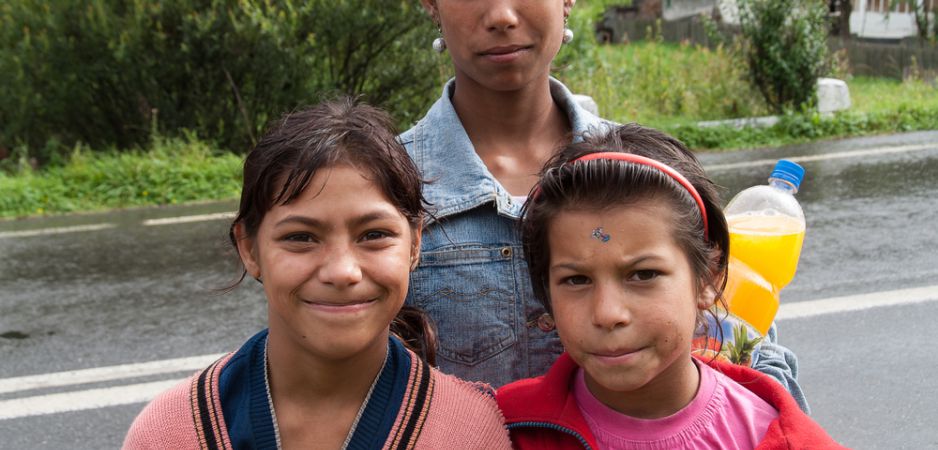Terrorist attacks, economic crises and two judgments by the US Supreme Court have far-reaching implications that might turn out to be historic.
Ramadan is the ninth month of the Islamic calendar when Muslims are supposed to fast, pray and lead pure lives. This year, on June 26, tragic attacks took place on the same day of this holy month in Tunisia, Kuwait and France.
In Tunisia, 39 people died in an attack on Imperial Marhaba Hotel in Sousse, “a palm-flecked town on the northeast Tunisian coast,” home to vacationing European tourists. In Kuwait, the Imam Sadiq Mosque was targeted when more than 2,000 Shiite worshippers were kneeling down to pray, leaving at least 27 dead and more than 300 injured. In France, a US-owned gas and chemicals company near Lyon was attacked. Although only two people died in an explosion there, a decapitated head was found on the railings of the factory site.
The Islamic State (IS) has claimed credit for the Tunisian attack. Now, foreigners are fleeing the country, which will suffer immensely because over 15.2% of its gross domestic product (GDP) relies on tourism. This sector generates an estimated 473,000 jobs, 13.8% of the total employment.
Tunisia is the great hope of the Arab world. This is the country where the Arab Uprisings began. It has managed a relatively peaceful transition to democracy, even as neighboring Libya has imploded into civil war and Egypt has slipped back into tyrannical military rule. The Islamic State attack is a major setback for Tunisia because life itself is perceived to be under threat.
In the aftermath of the terrorist attacks, Tunisian Prime Minister Habib al-Essid declared that 80 mosques not controlled by the state would be closed down because they were purportedly inciting violence.
Tunisians could do well to remember that overreaction is unwise. During Easter 1916, some Irish nationalists launched an innocuous rebellion that was scarcely a threat to the grand British Empire. However, this was the height of World War I and the British were on an edge. Their draconian repression in Ireland made martyrs out of the dead and fueled a fervor that eventually led to Irish independence. The far more recent US overreaction to the 9/11 attacks has led to damaging consequences.
Tunisia’s en masse closing down of mosques is a knee-jerk reaction. More importantly, they are an unreasonable restraint on the liberty of belief, faith and worship of Tunisian citizens.
An Islamic State affiliate has claimed credit for the attack in Kuwait. This tiny oil-rich state, ruled by the Sunni al-Sabah family, is sandwiched between Iraq and Saudi Arabia. The US State Department estimates that 30-35% of Kuwaitis are Shiite. They are underrepresented in government and resent being less than equal in a political system not renowned for its fairness. Kuwait’s ruling family is in the throes of corruption scandals and is reportedly feuding for power. As Shiite-dominated Iraq is moving closer to Iran, Kuwait is drifting toward Saudi Arabia. The Shiite-Sunni sectarian schism that is blighting the Middle East is playing out in every country, and Kuwait is no exception.
The IS attack has put the ruling al-Sabah family in a bind. Either it defends the Shiites to stabilize Kuwait, or it persists with the anti-Shiite Wahhabist doctrine that it formally adheres to and promotes in its schools. As mentioned in a previous The World This Week, this is the Middle East’s version of the Thirty Years’ War.
Earlier this year, the Charlie Hebdo killings shook France. The recent attack has rattled the country. Modern sensibilities are particularly susceptible to beheadings, and the days of the guillotine are long gone in la grande nation. French President François Hollande held a second emergency defense council meeting and declared afterward: “It’s difficult for a society to live for years under the threat of attack. The question is not if there will be another attack … but when.” He is right.
Thanks to its history of rebellions and revolutions, France has a legendary intelligence apparatus. After the Charlie Hebdo attacks in January, the French government promised to pour in billions of euros to beef up its intelligence and counter jihadist ideology. It even began a de-radicalization scheme that involves online anti-jihadist material and improved training for imams. Yet jihadist ideology is seducing disaffected youths in France’s wretched banlieues. Pourquoi?
Well, part of the answer is the economy. French unemployment reached a record high in the last quarter of 2014. This figure of over 10% is misleading, because it is a percentage of “active population” and the numbers of the active have dropped alarmingly. Among disaffected Muslim minorities living in terrible ghettos, jobs are few and pay little.
Yet there is something more brewing. The French are notoriously racist and treat minorities shamefully. Resentment is a toxic brew and makes young French Muslims susceptible to the charms of violent jihad.
French economic woes are miniscule when compared to the Greek ones, where the debt crisis has reached a flashpoint. By June 30, Greece has to pay €1.6 billion to the International Monetary Fund (IMF). It needs a new bailout to pay back an earlier bailout. The myth of the inviolability of creditor rights is leading to a circular repayment situation that defies logic. Instead of writing off some debt and taking a haircut, creditors want to lend yet more money to Greece on the fictional basis that it will all one day be repaid.
The creditors led by Germany demand austerity and fiscal reforms. They propose deregulation of the labor market, pension cuts and further reductions in public sector wages. They also want an increase in value-added tax on food, restaurants and tourism, and the elimination of tax breaks of the Greek islands. The Greeks have made concessions but want leniency, particularly in light of the fact that Syriza was voted in to lighten the weight of debt crushing the country. This anti-austerity party won power in a protest vote in Greece and has openly Marxist leanings.
Negotiations have put Greek Prime Minister Alexis Tsipras between a rock and a hard place. If he gives in to creditors, his supporters will view him as Judas. If he cocks a snook at eurozone and IMF bigwigs, a Greek default might lead to an exit from the euro and economic collapse. To remove his head from the chopping block, Tsipras has announced a referendum on July 5 so the Greek people themselves can make “a worthy decision” for future generations, for Greek history, for the country’s sovereignty and dignity.
In an act of breathtaking arrogance, eurozone finance ministers have rejected Tsipras’ request to extend the bailout program beyond June 30. Tsipras and his colleagues have not been the most adroit of negotiators. They have been guilty of many a faux pas such as skipping post-negotiation dinners with their creditors. Yet they are right to opt for a referendum. It is the only option for Syriza because they are being asked to go against what they campaigned for in the land of the fabled Athenian democracy. By their irresponsible intransigence, eurozone leaders are playing footsie with the euro and the destiny of the European project.
Even as Europe totters, the Chinese are feeling the tremors. Stocks sank in Shanghai on June 26. The Chinese have long feared three things. First, they worry about the bursting of a real estate bubble that has resulted in ghost cities. Second, they are uneasy about bad debts on the books of their banks. Many of these debts are owed by zombie construction companies. Third, they fear that the end of the yearlong debt-fueled stock market rally might spill over into the wider Chinese economy.
Even as top American and Chinese officials engaged in powwows during the US-China Strategic and Economic Dialogue in Washington DC, the Chinese worried more about their economy. To reassure everyone, Premier Li Keqiang declared that “China had the ability to maintain growth at a medium-high speed and upgrade the economy to a medium-high level.” Also, the central bank announced a targeted cut of the reserved requirement ratio as well as 2015’s third reduction of the one-year deposit and lending rates beginning June 28 to boost the economy.
For once, it is not the economy that is on top of Uncle Sam’s mind. A Supreme Court, where five out of nine justices are Republican appointees, handed down two rulings that have delighted US President Barack Obama, Democrats and liberals. First, Obama’s health care legislation that allows the federal government to dole out nationwide tax subsidies for poor and middle-class people so they can buy health insurance has been upheld in a 6-3 ruling. The richest and fattest country in the world spends an obscene 17.1% of its nearly $17 trillion GDP on health care but still fails to provide health care to millions. The justices have blessed Obama’s health care reform to make the United States a kinder and gentler nation.
Second, in a 5-4 judgment, the justices have made same-sex marriage legal in all 50 states of the US. Justice Anthony Kennedy declared that the plaintiffs asked “for equal dignity in the eyes of the law. The Constitution grants them that right.” Ironically, Kennedy is a Ronald Reagan appointee and this has left many Republicans apoplectic.
Justice Antonin Scalia, a fellow Catholic and colleague, damned the judgment as a “judicial Putsch” and “a threat to democracy.” Scalia is being hyperbolic but has a point. The US would have been better off if this measure had been implemented via a referendum as in Ireland, the land of Kennedy’s roots. As Chief Justice John Roberts points out, social policy is best determined by legislatures and not judges. Yet leaving aside constitutional and philosophical musings, Obama is right when he says that this judgment “is a big step in our march toward equality.”
*[You can receive “The World This Week” directly in your inbox by subscribing to our mailing list. Simply visit Fair Observer and enter your email address in the space provided. Meanwhile, please find below five of our finest articles for the week.]
[seperator style=”style1″]Let’s Not Forget Our Own Extremism[/seperator]
To deem behavior or opinion as extremist depends on a particular point of view.
In January, a million people gathered behind world leaders who elbowed each other to be out in front of a “Je Suis Charlie” banner. When normality does not sell, as Vincente del Bosque puts it, elites cut out an increasingly radical profile. Behind them, among the masses, it looks as if intolerance is drawing a crowd.
But it begs the question, if we have civilized ourselves in part by cultivating tolerance, then why do we appear to be living in times of such virulent extremism? Are many of us so inundated with radical political viewpoints and infatuated with war that we now assume that the word “intolerant” cannot be associated with the expression of our own (Western) politically extremist views?
To deem behavior or opinion as extremist depends on a presumptive point of view. I would like to think that the preferred standpoint is one that draws from the better… Read more
[seperator style=”style1″]BBC and India’s Problematic Romance[/seperator]
In this edition of The Interview, Fair Observer talks to former Bureau Chief of BBC New Delhi Sir Mark Tully.
The relationship between the Indian public and the government has often been fraught with tension. During such times, foreign broadcasters like the BBC have found it easier to make inroads in a new cultural setting and communicated effectively with the Indian audience.
However, in the history of independent India, the relationship between the government and foreign media has not always been stable. On June 25, 1975, then-Prime Minister Indira Gandhi declared a state of emergency—known as the “Emergency”—during which the BBC office in India was shut down. More recently, the Indian government made an attempt at stopping the British broadcaster from airing India’s Daughter, a documentary on sexual violence in the country.
Sir Mark Tully, an author and the former bureau chief of BBC New Delhi, started his career in India with the transistor radio in the 1960s. He has witnessed… Read more
[seperator style=”style1″]Media Promote Stereotypes Against Roma People[/seperator]
When a nomadic people like the Roma do not have their own country, who will stand up for them?
It is fascinating to see people all over Europe listening to and enjoying the music and art of the Roma people, who are often known as “gypsies.” Roma have contributed to the history, culture and literature of the region, being not only a separate ethnic minority, but also an integral part of the societies and nations in both the Americas and Europe.
Even today, however, they remain stigmatized and disparaged. Media portrayals promote stereotypes about the Roma, accenting the negative aspects, and complicating their interrelationships with non-gypsies.
In mid-October 2013, a story broke out in international media that a 4-year-old, blond-haired, blue-eyed girl named Maria was living with a gypsy couple claiming to be her parents, with whom she bore no physical resemblance. According to The Greek Reporter, on October 16, during a routine “operation” on a Roma settlement in Greece, police spotted the child… Read more
[seperator style=”style1″]Asian-African Summits Are Not a Waste of Time[/seperator]
Despite many countries in Asia and Africa being underdeveloped, South-South cooperation is still important.
Indonesia plays a central role in Asian-African relations. In 1955, the country hosted the Bandung Conference, where President Sukarno took special pride in addressing the representatives of 25 nations—the majority of which had only recently achieved sovereignty—portraying himself as the leader of the group he termed “Newly Emerging Forces” (NEFOS). The aim was to counter Western imperialism and colonialism.
In 1992, almost four decades later, then-Indonesian President Suharto addressed a grown body of states at the 10th summit of the Non-Alignment Movement (NAM) in Jakarta, seeing a further need for “Third World” countries to represent their interests collectively.
On April 24, exactly 60 years after the first large-scale Asian-African summit, incumbent Indonesian President Joko Widodo reiterated in his speech at the Asian-African Conference 2015 the relevance of South-South cooperation. He accused industrialized nations of actively hampering the development of poorer countries. Soon after the 2015 summit, critics voiced their concern… Read more
[seperator style=”style1″]Ukraine on Brink of Financial Collapse[/seperator]
Will Europe allow a bankrupt Ukraine to fall back under Russian domination?
Ukraine is on the brink of financial collapse. The country is unable to meet interest payments. Its gross domestic product (GDP) fell by 6.8% in 2014 and is expected to fall by an even greater extent this year. Meanwhile, it has to defend itself against a neighbor that guaranteed its borders as recently as 1994.
Instead of stepping forward to help Ukraine financially, the European Union (EU) and the United States are both leaving the job to the International Monetary Fund (IMF). The IMF is offering Ukraine $40 billion, whereas the EU says it can only manage $2 billion.
The European Union has already extended 40 times as much credit to Greece as it has given to Ukraine, whose population is four times that of Greece. If this ratio reflects the EU’s real priority, it is unbalanced. GDP per head in Greece is about three times that of Ukraine. Like Greece, Ukraine has a lot… Read more
The views expressed in this article are the author’s own and do not necessarily reflect Fair Observer’s editorial policy.
Photo Credit: Posztos / Shutterstock.com
 We bring you perspectives from around the world. Help us to inform and educate. Your donation is tax-deductible. Join over 400 people to become a donor or you could choose to be a sponsor.
We bring you perspectives from around the world. Help us to inform and educate. Your donation is tax-deductible. Join over 400 people to become a donor or you could choose to be a sponsor.
1 comment
Leave a comment
You must be logged in to post a comment.
Support Fair Observer
We rely on your support for our independence, diversity and quality.
For more than 10 years, Fair Observer has been free, fair and independent. No billionaire owns us, no advertisers control us. We are a reader-supported nonprofit. Unlike many other publications, we keep our content free for readers regardless of where they live or whether they can afford to pay. We have no paywalls and no ads.
In the post-truth era of fake news, echo chambers and filter bubbles, we publish a plurality of perspectives from around the world. Anyone can publish with us, but everyone goes through a rigorous editorial process. So, you get fact-checked, well-reasoned content instead of noise.
We publish 2,500+ voices from 90+ countries. We also conduct education and training programs
on subjects ranging from digital media and journalism to writing and critical thinking. This
doesn’t come cheap. Servers, editors, trainers and web developers cost
money.
Please consider supporting us on a regular basis as a recurring donor or a
sustaining member.
Will you support FO’s journalism?
We rely on your support for our independence, diversity and quality.












June 28, 2015
I am aghast at your conclusive remark that "Egypt has slipped back into tyrannical military rule." With the Muslim Brotherhood seeking to establish Islam's supremacy in Egypt and, in the process, trying to "eradicate" other religions by destroying their places of worship like the churches and synagogues, do you think the military rule was wrong in taking a tough stance against these religious lunatics?